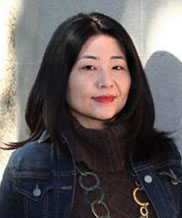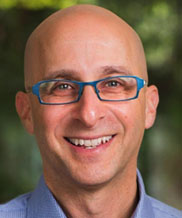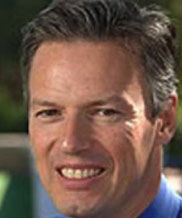Innovation Leadership in Highly Dynamic and Unpredictable Contexts
The mediaX Global Innovation Leadership Program, facilitated by THNK – the School of Creative Leadership is a 4 Day immersive experience that is structured around the shared experience of a simulated situation that will invite participants to zip through decades of energy transition in a few days. The program will feature insights from Stanford’s global thought leaders on human factors for energy change, as well as dynamic and fast-paced experiential learning that puts participants in a diverse set of roles.
This program deepens mindsets and competencies of leaders needing to innovate in fast-changing and fluid environments. Participants will walk away with an enhanced understanding of the value of empathic exploration of complex situations; how to leverage personal purpose and lead from a vision; how to lead teams with a co-creative mindset; and how to design innovative business models and scaling approaches that help the organization pursue its strategy in contexts riddled with ambiguity.
THIS EVENT IS FULL
Please Email Addy Dawes if you have any questions.
The program experience is immersive, interactive and intense. The learnings and insights harvested throughout the week are applicable to any leader in any industry that finds itself in dynamic, complex and volatile environment with high uncertainty. These include:
• Exploring the leadership qualities required during transition, at personal, team, organizational and systems level
• Exploring the behaviors, strategic decision-making and business model innovations required to shape the future of an industry
• Building full-system awareness and understanding of how a system works and the roles of various stakeholders within the system
Participants will leave the program with a broad understanding of the content, a deep understanding of the context, and a hands-on toolbox filled with design thinking, critical thinking, and systems thinking skills useful for complex problems at work and elsewhere.
Participants will also take home a deeper self-awareness of leadership strengths, weaknesses and growth areas, as well as a network of experienced colleagues.
Details:
This Event if Full
Please email Addy Dawes if you have any questions.
Presenters

Kyoko Sato is the STS Associate Director and the Director of the STS Honors Program. Her research explores how cultural meanings, politics, and institutional frameworks intersect in the development of sociotechnical systems. She is currently conducting a multi-year study on nuclear governance in Japan and the United States, specifically examining how it evolved in postwar years and what impact the 2011 Fukushima nuclear disaster has had on it in both countries. Her previous work examined the politics of genetically modified food in France, Japan, and the United States. Her fields of teaching include the politics and culture of food, environmental politics, nuclear history, globalization, social theory, and methods of social sciences.

Robert Siegel researches strategy and innovation in both large and small companies, as well as the opportunities and challenges that technological change brings to these firms. Additionally, Robert teaches product management and product development best practices and methods, as well as entrepreneurial finance over the life-cycle of growing companies. He is also a partner at XSeed Capital, and his investment areas include business operations where computational technologies automate/improve company performance, mobile solutions for firms of all sizes, and software systems that shape both business and consumer behaviors.

Martin Fischer's research goals are to improve the productivity of project teams involved in designing, building, and operating facilities and to enhance the sustainability of the built environment. His work develops the theoretical foundations and applications for virtual design and construction (VDC). VDC methods support the design of a facility and its delivery process and help reduce the costs and maximize the value over its lifecycle. His research has been used by many small and large industrial government organizations around the world.